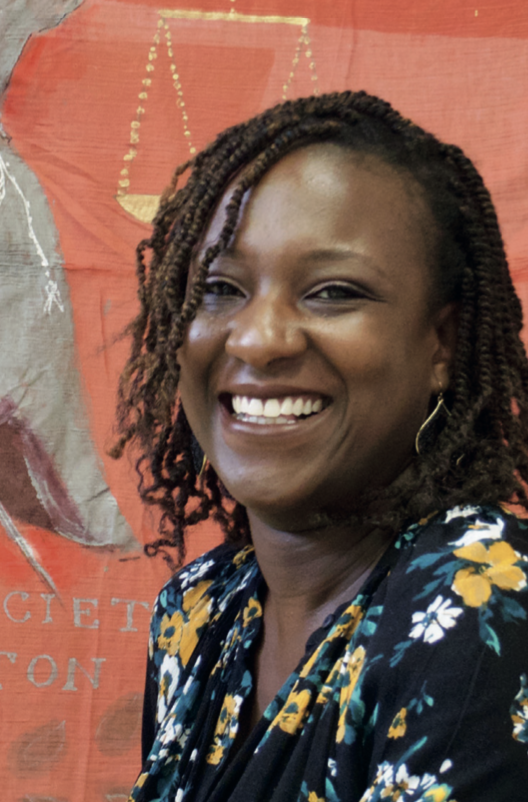"Nobody is better than you"
A Black History Month Q&A with Claire Quansah, member of Bee Moor WI (Cheshire Federation), a PR consultant and mentor to young BME women in her industry.

Credit: Hazel Davies
Q: Tell us a bit about yourself.
I’m a PR consultant in a leading agency in Manchester, working on campaigns for a range of consumer and corporate clients.
Having started out when there were so few Black people in the industry, I’m proud that I’ve been able to develop my career whilst being a mother. I’ve been lucky to work in places where I can be my authentic self, as I know this isn’t always the case for ethnic minorities in this sector. Because of that, I’m also proud to be involved in programmes that support BME talent to get the careers they deserve.
Q: Who are some Black women who inspire you?
I always say my mum is one of the most inspirational women I’ve ever known – a lot of people say this when they meet her! She came to England in the ‘70s and experienced a lot of racism and discrimination. Throughout her career, she went on to do a lot of great work with young people and to reduce some of the health inequalities that Black people experience here in the UK, from raising awareness of sickle cell disease to campaigning for more diverse food options in hospitals. All of this whilst raising three children!
She would always say, “Nobody is better than you”, and I think that’s really important. It’s a reminder that just because somebody happens to have expensive possessions or a fancy job title, it doesn’t make them a better person. In my line of work, I find that this prevents me from being easily intimidated.
If I was to pick a famous woman, it would probably be Michelle Obama. Probably an obvious choice, but most Black professional women know how much pressure you can feel to be “perfect” as you rise up the ladder because you will be under much more scrutiny than others. She had the global spotlight on her and managed it so well, and still does today, without compromising her true self.
Closer to home, I’m a big fan of journalists like Yomi Adegoke, co-author of Slay In Your Lane: The Black Girl Bible; Liv Little, founder of gal-dem magazine; and award-winning lifestyle journalist Tobi Oredein, co-founder of Black Ballad, who have done a lot of work to amplify the voices and experiences of Black British women.
Q: For Black History Month in 2020, what’s an area of history you’d like to see highlighted?
I’d like to see more celebrations of Black women’s contribution to modern society. I’m happy that much of the Black History Month narrative has moved away from Black pain or the US perspective, for example, Nelson Mandela and Martin Luther King, but a lot more could be done. As a WI member, it’s great to hear stories about the suffragette movement, but many people don’t realise that Black people didn’t have the same rights as white people for a long time and people like activist Olive Morris worked really hard to change that. From nurse and businesswoman Mary Seacole to Diane Abbott, MP, there are plenty of Black British women who have made a huge contribution to society.
I think we need to ensure that people don’t view Black History as being just for Black people, but a celebration of how parts of our society have been formed by Black people. There are so many parts of history that have been whitewashed; this is a great opportunity to highlight the real stories.
Q: What change would you most like to see in UK society in the future?
That is such a big question, I don’t think I can answer it succinctly!
As a mother, I want my children to be treated fairly in school, their future workplace and wider society, but currently, there’s no guarantee of that because of lazy stereotypes and inaction. Obviously, I want more equality for ethnic minorities, but I know that won’t happen until many of the structural and institutionalised barriers against us are removed, which is a very big task.
With that, I guess the change I’d like to see is for more people to actively try to dismantle prejudices and (appropriately) hold people to account. I’m not flying the flag for cancel culture, but there is a need for challenging conversations to be had in order to drive a change, even when the hashtags have stopped. It’s easy to say the right things on social media, but what’s more important is real action and the need to challenge people to do more.
